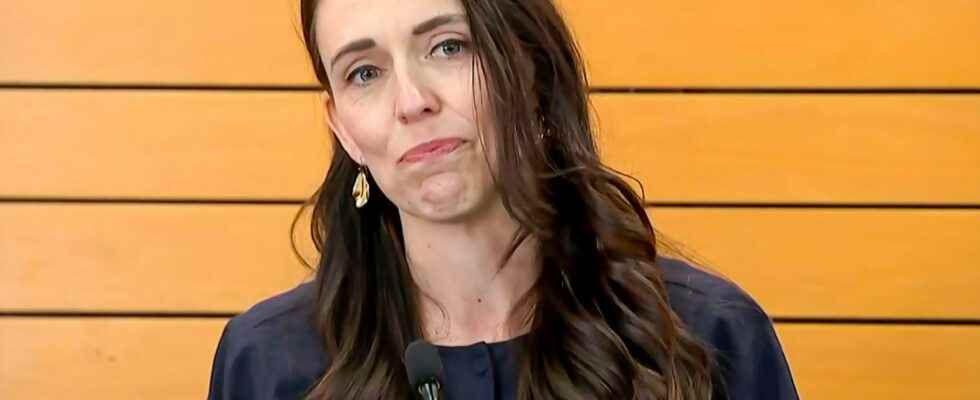BRAZIL
Lula fires the general-in-chief
Two weeks after the assault on Congress, the Supreme Court and the presidential palace, President Lula dismissed the chief of the army staff on January 21 in order to reduce the influence of his predecessor Jair Bolsonaro within of the military institution.
The website G1 observes the new power’s desire to appease: “Brazilian Defense Minister José Mucio wants to turn the page on the January 8 assault; he does not see any direct involvement of the armed forces in the events in Brasilia, but on the military hierarchy to take action against those possibly involved in these acts.”
UKRAINE
Misappropriation of funds in the ministry
A senior Ministry of Defense official, suspected of embezzlement, was sacked on 22 January. Vaslav Lozynkiï reportedly received $400,000 to facilitate the conclusion of contracts for the purchase of equipment and generators at inflated prices.
An audit is also underway on other contracts for the supply of food to the military at prices two to three times higher than the market. “The worst has happened, even if it was foreseeable”, writes the ZN.UA website. President Volodymyr Zelensky has promised new measures against corruption. “There will be no going back to what existed in the past,” he said on January 22.
FRANCE-GERMANY
Couple therapy at the Sorbonne
On January 22, Emmanuel Macron and Olaf Scholz celebrated the 60th anniversary of the Elysée Treaty, consecrating Franco-German friendship. At the Sorbonne, the two Heads of State have multiplied the signs of affection and displayed their common desire to once again become a driving force in Europe.
“After weeks of tension, Macron and Scholz showed harmony in Paris, even if disagreements persist, particularly on the question of tank deliveries to Ukraine”, reports the German newspaper Die Zeit. While Paris announced the dispatch of AMX 10-RC light tanks to kyiv, Berlin still refused to give up its Leopard 2 heavy tanks when Scholz was delivering his speech.
SWEDEN
An extremist burns the Koran
The Swedish-Danish leader of the Danish identity and anti-Islam group Stram Kurs (Hard Line) burned a Koran in front of the Turkish embassy in Stockholm on January 21. Authorized by the Swedish police, this “happening”, which provokes the ire of Turkey, comes at a time when Ankara is being asked to validate the application for membership of Sweden and Finland in NATO.
“Our candidacy for NATO being used in the Turkish electoral debate, it is almost impossible for Sweden to be admitted before the Turkish elections in May, notes the daily. Aftonbladet. If Erdogan wins, the expectation could extend well beyond the elections.”
SOUTH AFRICA
Sergey Lavrov in Pretoria
Russian Foreign Minister Sergey Lavrov traveled to the South African capital on January 23 to meet his counterpart Naledi Pandor. Six months after his last African tour, the Kremlin diplomat chose to visit a close ally, South Africa. Pretoria has never condemned the Russian invasion of Ukraine and will host military exercises with Russia and China off its coast on February 17.
“Then Lavrov will travel to North Africa to visit Tunisia, Mauritania, Algeria and Morocco; that’s 12 countries in just over six months. An impressive diplomatic charm offensive on Africa,” says online media Daily Maverick.
INDIA
BBC documentary censored
A BBC documentary about Indian Prime Minister Narendra Modi was blocked in India by New Delhi on January 21. The subject of the film? The leader’s murky role in the 2002 Gujarat communal riots that left nearly 1,000 Muslims dead.
Narendra Modi, at the time head of the state of Gujarat, is notably accused of having knowingly turned a blind eye to the violence that occurred then. “The decision to block the documentary comes in an increasingly difficult context for the media and freedom of the press under the Modi government”, regrets the Guardian.
NEW ZEALAND
Hipkins replaces the popular Ardern
By her own admission, she had “no longer enough energy” to govern, five years after coming to power in Wellington. Prime Minister Jacinda Ardern resigned from her post on January 19 and gave way to her former Minister of Education, Chris Hipkins, who was appointed by New Zealand Labor MPs.
Hailed for his effective management of the Covid-19 epidemic – the file had been entrusted to him by Ardern – he is “considered a centrist within the party, explains the New Zealand Heraldbut he strongly defends classic labor values regarding the distribution of wealth and the rights of workers”.
